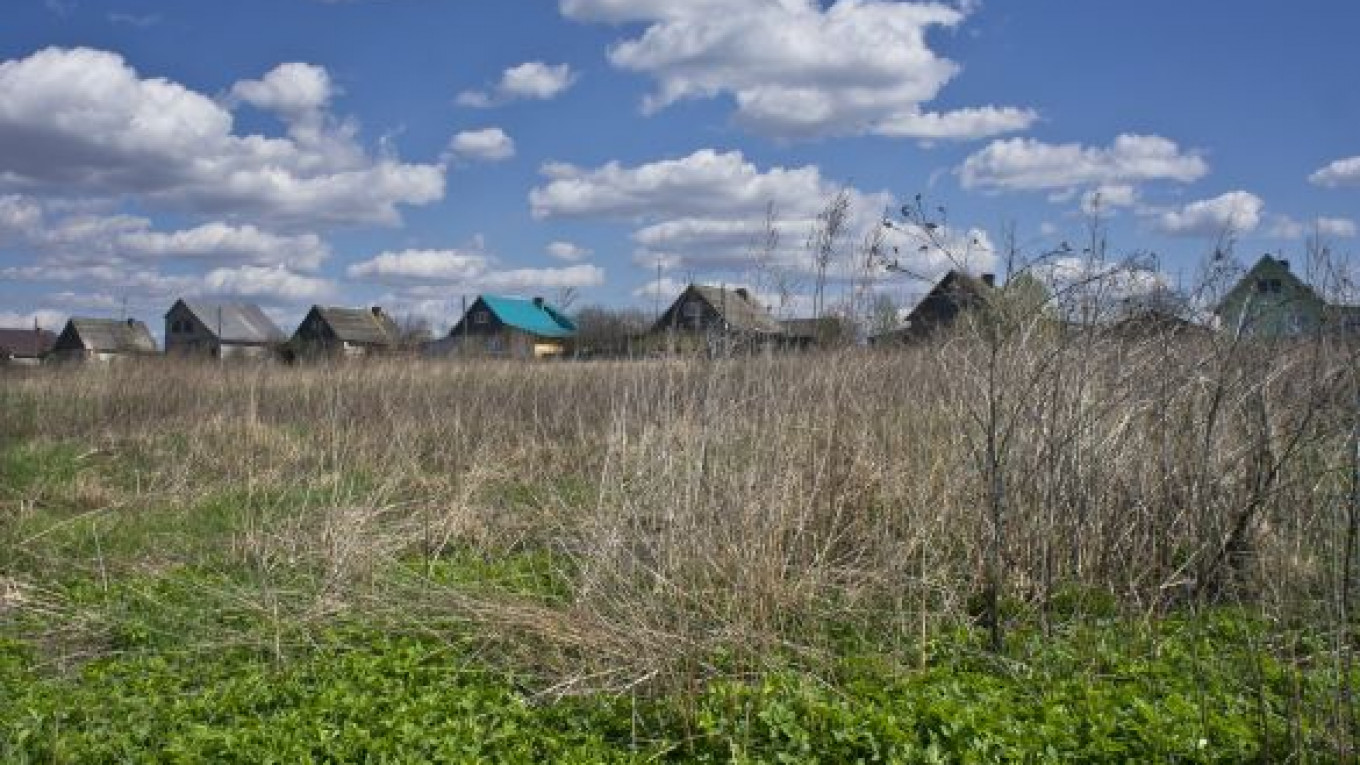Moscow region Governor Sergei Shoigu asked the regional legislature at its fall opening session Thursday to push for a change in federal law in a bid to gain more control over valuable land around the capital.
Investors often choose locations outside the Moscow region for their plants and other structures because of the dearth of plots they can lay their hands on, the regional government has said.
Shoigu, formerly the longtime emergency situations minister, appealed to the Moscow regional legislature to draft amendments based on his recent ideas for increasing the fiscal burden on landowners.
He called on the legislature to submit the proposals to the State Duma, which could then vote them into federal law.
“The proposals have already received approval from the president,” Shoigu’s spokeswoman, Darya Zatulina, said.
One of Shoigu’s ideas, which he first voiced in the summer, is the introduction of a fee for rezoning land — for example, turning a plot designated for agricultural use into land for construction.
Every region would set its own size for the fee, and the Moscow region is planning to charge 30 percent of the resulting value of a land parcel.
The measure would help fill the regional budget and take the business of converting land plots out of the gray area, officials have said.
Private landowners now hold 700,000 hectares of property that they don’t use, Deputy Governor Andrei Sharov said. The regional government owns 20,000 hectares.
“When an investor comes, we have [no land] to offer,” Sharov said in a Vedomosti interview published earlier this month.
Another of Shoigu’s ideas is to increase taxes on agricultural landowners who don’t use their property for farming. The measure would raise the land tax tenfold from the current rate of 0.3 percent.
Additionally, Shoigu proposed to increase the penalty that companies pay for failure to do any farming on such lands. Again, it would go up at least tenfold, to 1 million rubles ($31,250) from between 80,000 and 100,000 rubles.
Speaking at a regional government meeting last month, Sharov said the higher fines and taxes would create an incentive for landlords to use their lands or get rid of them. In the Vedomosti interview, he said farming on the unused 700,000 hectares of land could yield 2 billion rubles in taxes.
One more idea of Shoigu’s is to increase the cadastral price of unused farmland.
Shoigu told the lawmakers Thursday that if the proposals are submitted, he hoped the State Duma would back them by the end of this year.
On another subject, Shoigu said the regional government would have more money, 24 billion rubles, in its road fund next year.
That will allow the start of new projects, such as ones involving high-speed trams, cable cars and small aircraft, Shoigu said. He didn’t elaborate.
Related articles:
A Message from The Moscow Times:
Dear readers,
We are facing unprecedented challenges. Russia's Prosecutor General's Office has designated The Moscow Times as an "undesirable" organization, criminalizing our work and putting our staff at risk of prosecution. This follows our earlier unjust labeling as a "foreign agent."
These actions are direct attempts to silence independent journalism in Russia. The authorities claim our work "discredits the decisions of the Russian leadership." We see things differently: we strive to provide accurate, unbiased reporting on Russia.
We, the journalists of The Moscow Times, refuse to be silenced. But to continue our work, we need your help.
Your support, no matter how small, makes a world of difference. If you can, please support us monthly starting from just $2. It's quick to set up, and every contribution makes a significant impact.
By supporting The Moscow Times, you're defending open, independent journalism in the face of repression. Thank you for standing with us.
Remind me later.






